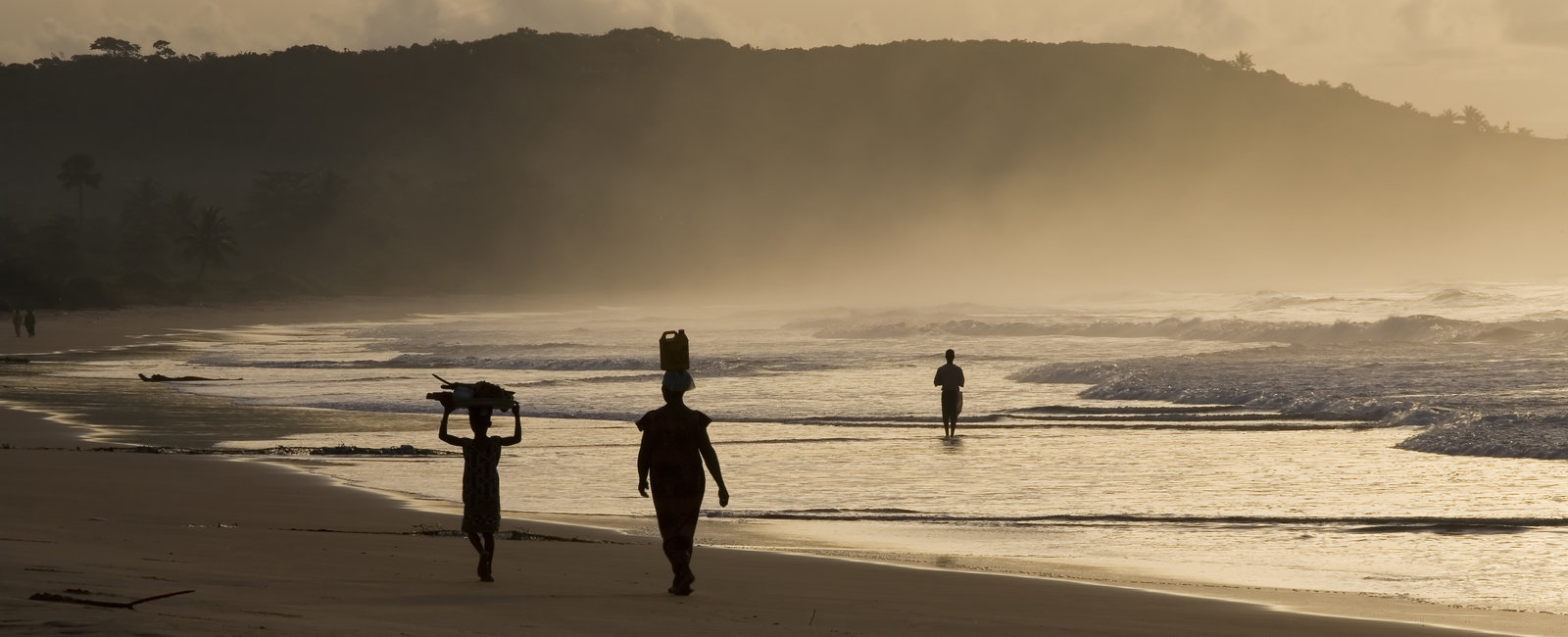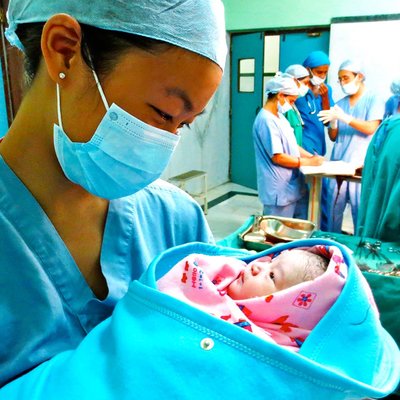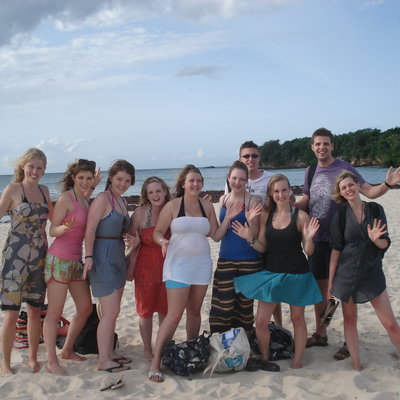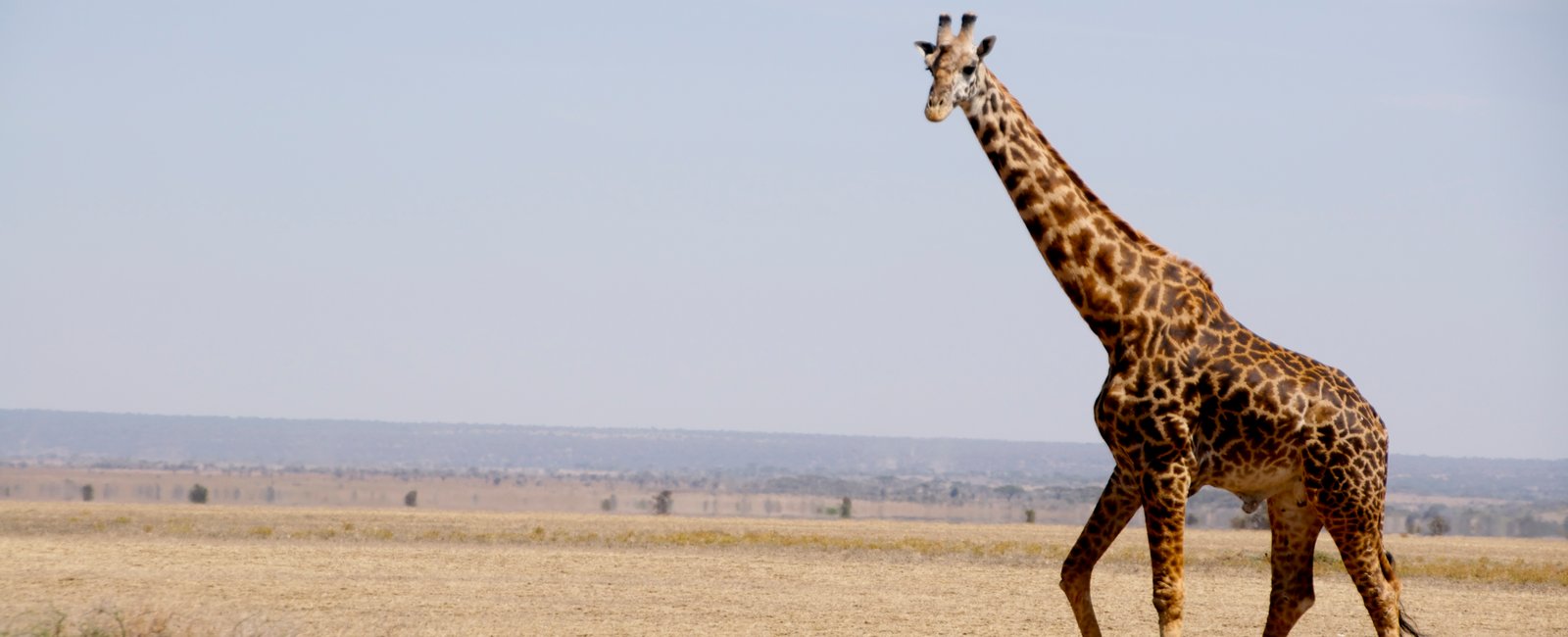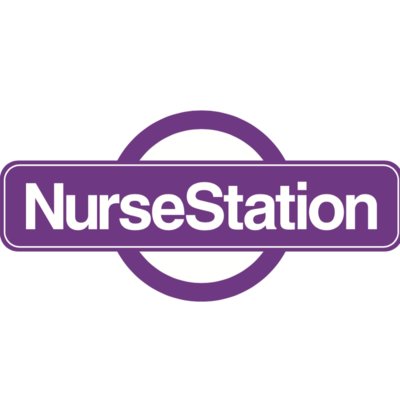Jemma travelled to Ghana in 2010. Since then, she’s worked as a cardiac nurse at Great Ormond Street Hospital and pursued her passion for tropical nursing in Malawi.
We recently caught up with Jemma to discuss how her overseas placement influenced the rest of her career…

So Jemma, what made you want to study nursing?
I don’t know. I’ve always felt like nursing is more of a passion than a job – like you’re just built for it.
I was naturally drawn to it, and it fits my personality. It felt like a natural calling. You are either a compassionate person or more of an academically driven person. I’m the former.
You studied for your nursing diploma at the University of Salford – what attracted you there?
I was after some change, but not too much. I’m from London and was keen to experience a new city.
The university had great reviews and offered the Children’s Nursing Diploma. The city was cool, and the school was highly recognised, which was also important to me.
And what was it like to study at the University of Salford?
Apart from all the fun I had and the great people I met, I struggled academically, if I’m honest. I was always more of a do-er and an explorer rather than sitting down and writing, so I struggled with my course's academic side.
However, I found the practical side easy. I loved placements, but I didn’t love writing essays—I enjoyed learning clinical skills.
So, how did your overseas placement fit into all of that? When did you travel with us?
I went to Ghana in October 2010, so I would have been in the second year of my Diploma.
I wanted to go with two peers from my course — we applied for funding through the university and gave a big presentation about our upcoming trip. We discussed Ghana, Work the World, and why we wanted to do it.
We had to demonstrate that the placement would be worthwhile and beneficial to our learning.
Out of our whole cohort, we were the only three going overseas to a developing country for our placement, so it was quite a big deal, and I don’t think many students had done it before.
The university and our lecturers were supportive but also wanted to ensure it was beneficial. We were just pumped to get out there and have this once-in-a-lifetime experience!
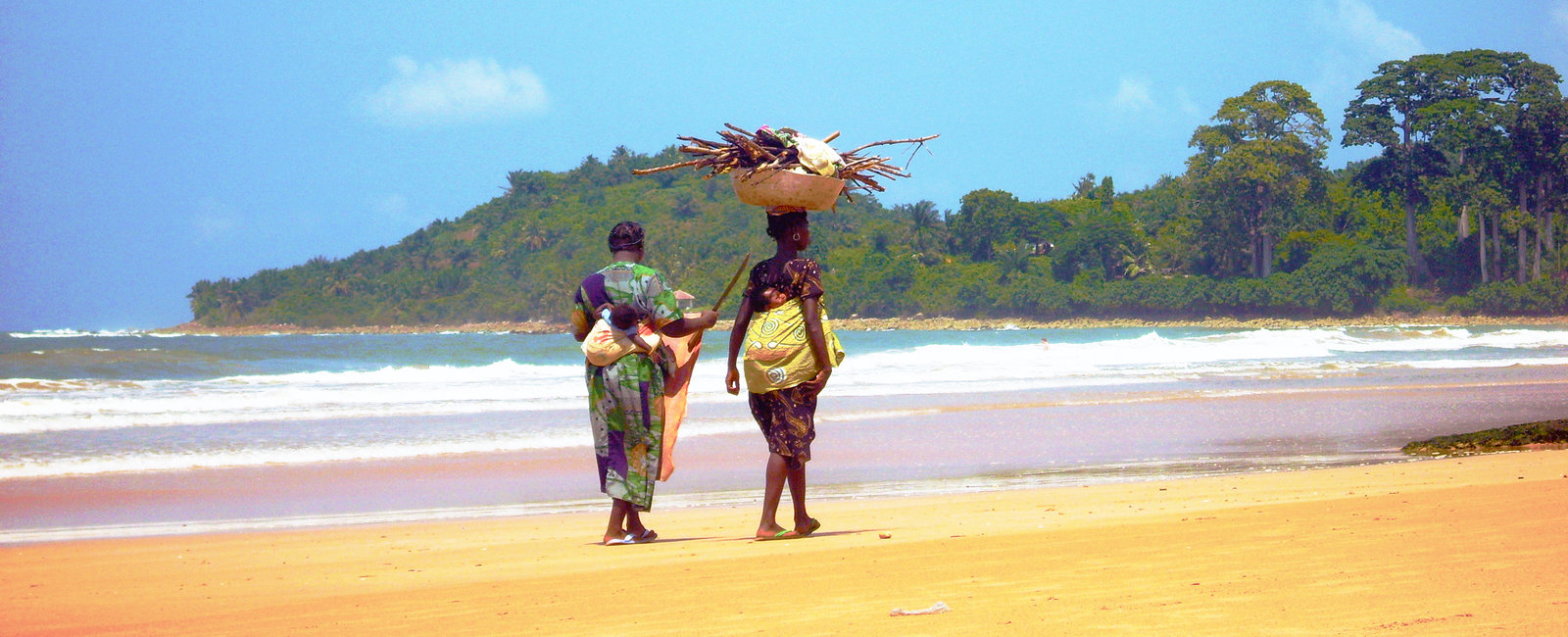
What was it that made you want to go overseas on an experience like this?
Being a student nurse is stressful – you learn, do clinical placements and likely have a part-time job to support yourself. You learn a lot from your placements in the UK, but I never felt pushed in a way that I’d feel overwhelmed or entirely out of my comfort zone. That’s what I was after.
I often heard about the differences in healthcare in developing countries, so why not jump at the chance to see it for myself? The university allowed us to do it, so why not take the chance to experience something that not many others have the opportunity to? All this while being able to travel to a new country!
Why Work the World? Can you remember how you heard about us?
I remember Googling a lot. And everything just seemed a bit complicated. But when I came across Work the World it all seemed so simple.
I exchanged a few emails with the team and had a few phone calls, and it was just like, here’s your house where you’ll be living, this is the hospital where your placement will be, this is the village where you’ll be based, these are your mentors, these are the other students you’ll be living with – it was so clear. And it just got me so excited.
Although the trip was pretty pricey, I was willing to pay for such a well-recognised service and opportunity. I read loads of reviews, and honestly, it felt so exciting.
Was there anything that worried you about going overseas for your placement?
I think my parents were more worried about it than me. I couldn’t wait to get out there. I still remember packing my bag and having a Chinese the night before with one of the girls I was travelling with because we lived together then. And then we headed off to the airport, and our parents came, and we all had breakfast together.
Nothing scared me. I’m quite adventurous, so the thought of going on such a trip was exciting—I was on a massive high.
I know it was ten years ago, but can you remember your first 24 hours once you landed in Ghana?
I remember driving through the village in a taxi and pulling up to the house with all our luggage. The friendly security team waved like crazy at us as we went through the enormous gates. It was a beautiful house.
The three of us shared a room, and I remember bickering about who would sleep and where. I loved our room and the whole Work the World team out there. There was such a lovely family vibe to the whole place. A few people were there, and we all got on instantly. Wenner together because we were fortunate enough to be cooked for.
And what about your hospital placement – what departments did you spend your time in?
Because I was trained in paediatrics and we rotated different departments, I spent half my time in the paediatric and half my time in the neonatal ward, with a few days in the maternity department, so I colour.
However, I got malaria, which took some time out of my placement. But it didn’t dampen my spirits! It led to some great things for me… I’ll tell you all about that later.
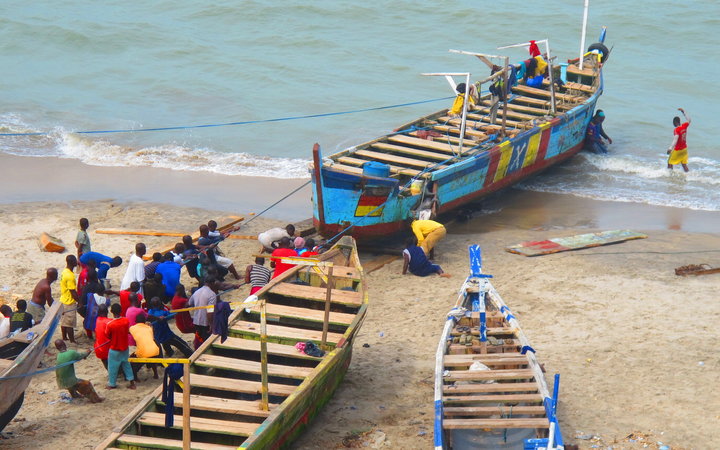
Wow, that sounds intriguing. But, to return to your placement – can you remember what the day-to-day was like in the hospital?
Because we also lived with medical students in the Work the World house (which was terrific support), we’d all share a taxi to the hospital and then go off to different wards for the day.
We’d turn up on the ward, and when I was in paediatrics, I’d join in with the ward round with the doctors. This took up a lot of the day.
I chatted with the nurses and the Ghanaian student nurses to learn about their work and how their training differed from ours. This was an excellent opportunity to exchange knowledge and learn from one another. We asked how they did things, and then they asked how we would do it back home.
It was initially challenging to see a different way of nursing because I was young, and so used to the NHS way of doing things. Still, it was essential to accept that people do things differently, and you had to be mindful of different capabilities and what the hospital could do. Too.
That was often how the day went. Then, we’d all meet again later to have a drink at the swimming pool or go to the beach.
We needed to have a good work-life balance. We would talk about what had happened during the day at the hospital and discuss different coping methods—it was nice having that unofficial debrief every day.
So, did you find living with other students in the Work the World house beneficial then?
I couldn’t have done it without the others in the house. I made such good friends with everyone, and every night, we’d play games together, have a drink, and chat at the weekly BBQ nights.
Everyone was such a laugh. I still speak to them ten years later. We try to meet occasionally, but it’s more complicated. I made long-lasting friendships – it made the whole experience. We’d all go away together on the weekends, body boarding or camping. It was amazing.
Did you face any challenging situations while you were there?
The death rate was hard to accept for me. But Ghana didn’t have the equipment to deal with some emergencies. A child would stop breathing, but not much could be done. They would manually resuscitate them, but eventually, it wouldn’t be enough.
If you look at resuscitation statistics in the UK, the chances of survival are slim, and that's true with all the technology and equipment. If there was a newborn in Ghana who had stopped breathing in an incubator that doesn’t work – there’s nothing you can do about it. That was hard to accept and not get too emotional about. That was a big challenge for all of us, that particular child.
Do you think experiences like that changed your approach to the rest of your nursing career?
From that one experience in Ghana, my whole attitude to nursing has changed. Humanitarian work is my passion now. And it might not have been if I hadn’t been to Ghana.
I’ve always been appreciative, but I’m much more thankful. I'mow. I see the good in most things.
Some things aren’t worth getting upset about unless you can change them and fight for them. But if you can’t change them, sometimes you must accept them.
So what happened once you graduated? What’s your current role?
After finishing my training at Salford, I worked as a cardiac nurse at Great Ormond Street Hospital for three years. Then, I took a few months off to travel around Asia and Australia before returning – I worked there for five years.
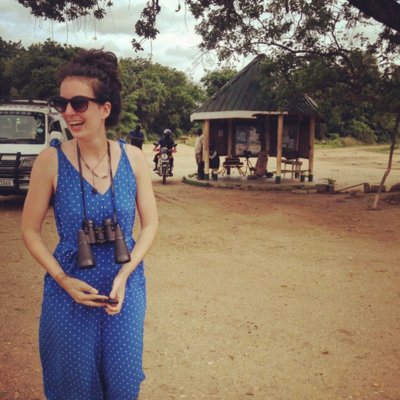 I then did a diploma in Tropical Nursing in London, which was the best bit of education I’ve ever done. I think it’s because it picked up on my passion and time in Ghana. I was training at this highly recognised school in London, surrounded by like-minded people who had worked worldwide. It was incredible.
I then did a diploma in Tropical Nursing in London, which was the best bit of education I’ve ever done. I think it’s because it picked up on my passion and time in Ghana. I was training at this highly recognised school in London, surrounded by like-minded people who had worked worldwide. It was incredible.
I learned about all the things I’d seen in Ghana, such as malaria, HIV, worms, and TB. It was terrific to learn more about what I witnessed during my placement, and it was great to bring it all together—my experience in Ghana helped.
I met a friend on the course, and we went to Malawi together for six months to work for a charity. We were part of a group of professionals from all over the world working together in a clinic. It was similar to a GP clinic in the UK with inpatients and outpatients so people from the village could use it. It was quite a special place.
I was able to put into practice what I had learnt in London. Returning to Africa with all the emotional and practical knowledge I’d gained in Ghana and my tropical nursing course was great. I knew it would be hard, but I was prepared.
When I returned to the UK, I worked as a nanny for a while and travelled to Mozambique with friends.
I also did palliative nursing in the community for a while while I decided what to do next. I met an organisation in Uganda that focused on maternal health, so I went to Uganda in January this year. However, I had to return to the UK after a few months due to the Coronavirus.
But I have a few things in the pipeline. Before the coronavirus pandemic and before I travelled to Uganda, I applied to be on emergency rosters at two organisations, and I attended some training events with them that focused on disaster relief work.
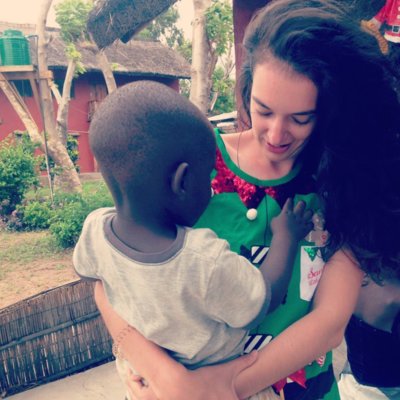 Currently, I’m working in a local general hospital in Devon, on a paediatric ward, which is great because it’s good to touch base now and again to keep my skills up.
Currently, I’m working in a local general hospital in Devon, on a paediatric ward, which is great because it’s good to touch base now and again to keep my skills up.
I’m just always itching to get away. I’ve never settled anywhere for more than six months because I have always wanted to be abroad. I want to be out in developing countries because I feel like that’s where I’m most utilised and fit best.
I love the UK and the NHS but never feel genuinely fit. My passion is elsewhere, and my drive is humanitarian work. And that all came from ten years ago!
So, do you think your Work the World experience in Ghana has contributed to your achievements so far?
It made me who I am and made me more eager to do what I do now. I often talk about how my experience in Ghana changed my outlook on life.
I can’t believe it’s been ten years, to be honest. What with getting malaria? It always crops up that I got malaria ten years ago. I worked pretty closely with a charity called Malaria No More UK. I campaigned in the Houses of Parliament and did a few pieces for magazine articles and newspaper reports. I even wrote to the Queen and Downing Street and received responses. My experience in Ghana has led to some epic adventures – it’s been incredible.
It certainly sounds like it! So, what are your ambitions for the future?
I’d love to continue with what I started in January in Uganda. I was meant to be out there for a year, so I’d love to return.
But, in the meantime, I’m pretty excited about the future and doing short-term projects in the UK to see my friends and family. But, knowing at any moment I could get called up on an emergency roster is exciting.
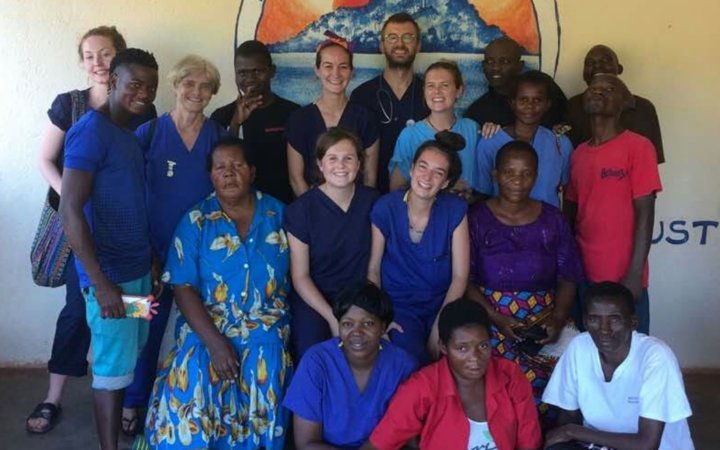
And lastly, do you have any words of encouragement for students considering undertaking an overseas placement?
Do it! I think it should be in the curriculum at every university. Students shouldn’t be forced to do it but should be encouraged to. Go out of their comfort zone and experience things they’ve not experienced before. I think it was the making of me as a nurse.
I think an overseas placement can help change your perspective and get you more excited about nursing. Nursing is complex and under a lot of pressure and strain at the moment, so I think it’s essential always to be excited about what is out there. I think an experience like the one I had in Ghana prepares you. It makes you a stronger person.
Discover more about our Electives in Africa. You'll find various unique destinations offering eye-opening clinical experiences and adventures.

START
YOUR JOURNEY
Want to go on a trip like Jemma's? Choose your discipline below to get started!
Want to go on a trip like Jemma's? Choose your discipline below to get started!
